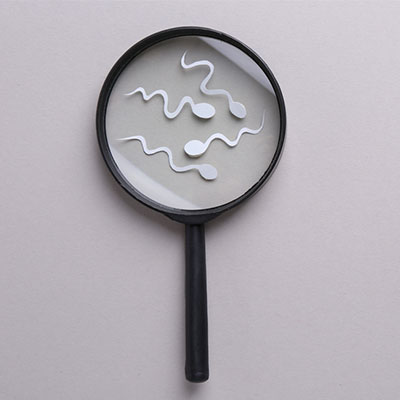Andrology is a medical specialty focused on male reproductive health and urological problems specific to men. It encompasses the diagnosis and treatment of conditions such as infertility, erectile dysfunction, ejaculatory disorders, hormonal imbalances (like low testosterone), and male contraception. Andrologists are trained urologists or endocrinologists who specialize in the complexities of the male reproductive and urinary systems, providing comprehensive care for men facing these often sensitive and impactful health challenges. You should consider meeting an andrologist at Male Infertility clinics in Karimnagar if you experience issues related to male reproductive and urological health. This includes concerns about fertility, such as difficulty conceiving a child, or if you have a history of conditions like undescended testicles or varicocele. Erectile dysfunction or other sexual health problems are also common reasons to see an andrologist. Additionally, if you have symptoms like testicular pain, lumps, or swelling, it's important to get them checked out. Men with hormonal imbalances, such as low testosterone, can also benefit from an andrologist's expertise. Finally, if you're considering a vasectomy or have questions about male contraception, an andrologist can provide guidance.

Disorders under andrology treated by Male Infertility Doctors in Karimnagar:
- Male infertility: Difficulty conceiving, often due to issues with sperm production, function, or delivery.
- Erectile dysfunction (ED): Inability to achieve or maintain an erection firm enough for sexual intercourse.
- Prostate diseases: Conditions affecting the prostate gland, such as benign prostatic hyperplasia (BPH) causing urinary symptoms, and prostate cancer.
- Hypogonadism: Low testosterone levels, leading to symptoms like fatigue, decreased libido, and muscle loss.
- Testicular disorders: Including testicular cancer, varicocele (enlarged veins in the scrotum), and epididymitis (inflammation of the epididymis).
- Sexually transmitted infections (STIs): Affecting the male reproductive tract.
- Peyronie's disease: Scar tissue causing penile curvature and painful erections.
- Ejaculatory disorders: Problems with ejaculation, such as premature ejaculation or delayed ejaculation.
Understanding male infertility:
Male Infertility Treatment in Karimnagar is a complex issue affecting millions of men worldwide, often causing distress and impacting relationships. It refers to a man's inability to cause pregnancy in a fertile woman. While the causes are numerous and varied, some are more common than others. Varicoceles, enlarged veins in the scrotum, are a leading cause, affecting sperm production and quality. Hormonal imbalances, such as low testosterone, can also disrupt sperm development. Genetic defects, infections of the reproductive tract, and certain medications or medical treatments like chemotherapy can negatively impact fertility. Lifestyle factors like smoking, excessive alcohol consumption, and obesity can also contribute to male infertility. Understanding these common causes is crucial for diagnosis and developing effective treatment strategies.
Can male infertility be treated?
Yes, male infertility is often treatable, although success rates vary depending on the underlying cause. Treatments range from lifestyle changes like improving diet and exercise to medical interventions such as hormone therapy or surgery to correct blockages. Assisted reproductive technologies (ART) like IVF or ICSI, where sperm is directly injected into an egg, are also highly effective options when other treatments are unsuccessful. The key is accurate diagnosis to determine the specific cause of infertility, which then guides the most appropriate and effective treatment plan.
Several factors can increase a male's risk of infertility. Lifestyle choices play a significant role, including smoking, excessive alcohol consumption, drug use, and obesity. Exposure to environmental toxins such as pesticides, heavy metals, and radiation can also damage sperm production. Medical conditions like varicocele (swelling of veins in the scrotum), infections (like STIs), hormonal imbalances, and certain genetic defects can impair fertility. Additionally, certain medications, chemotherapy, and radiation therapy for cancer treatment can negatively impact sperm count and quality. Finally, age can also be a factor, with sperm quality and quantity potentially declining over time.
